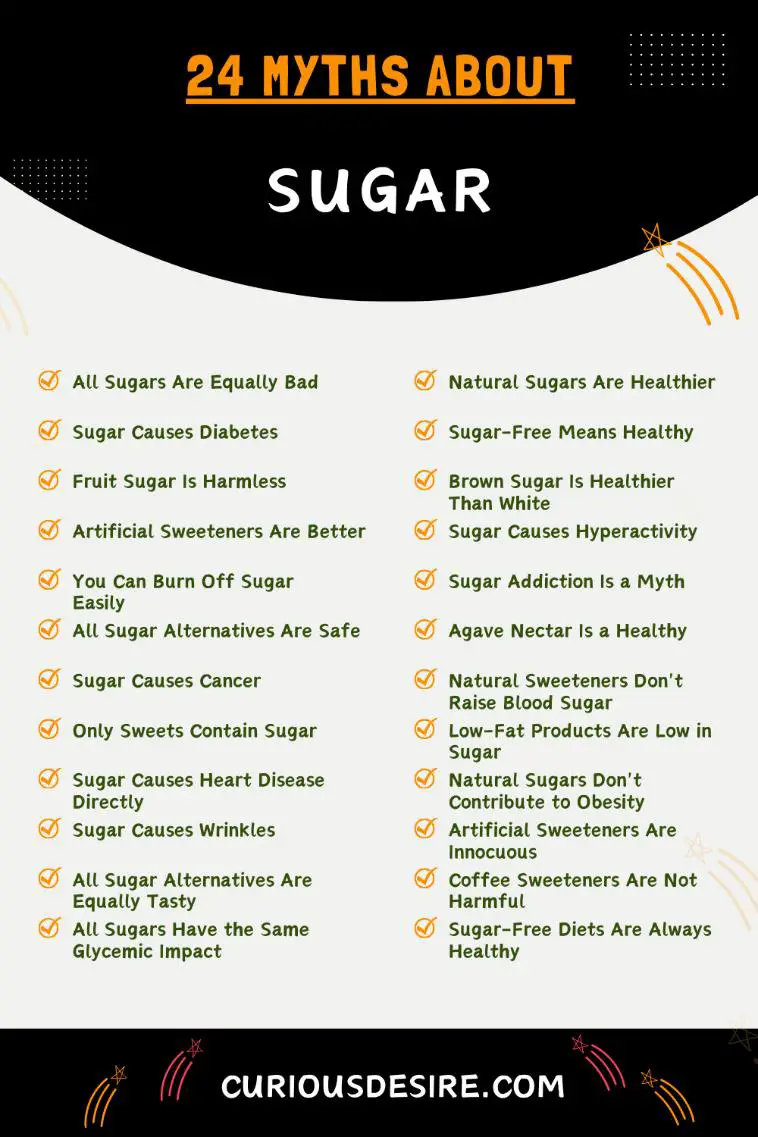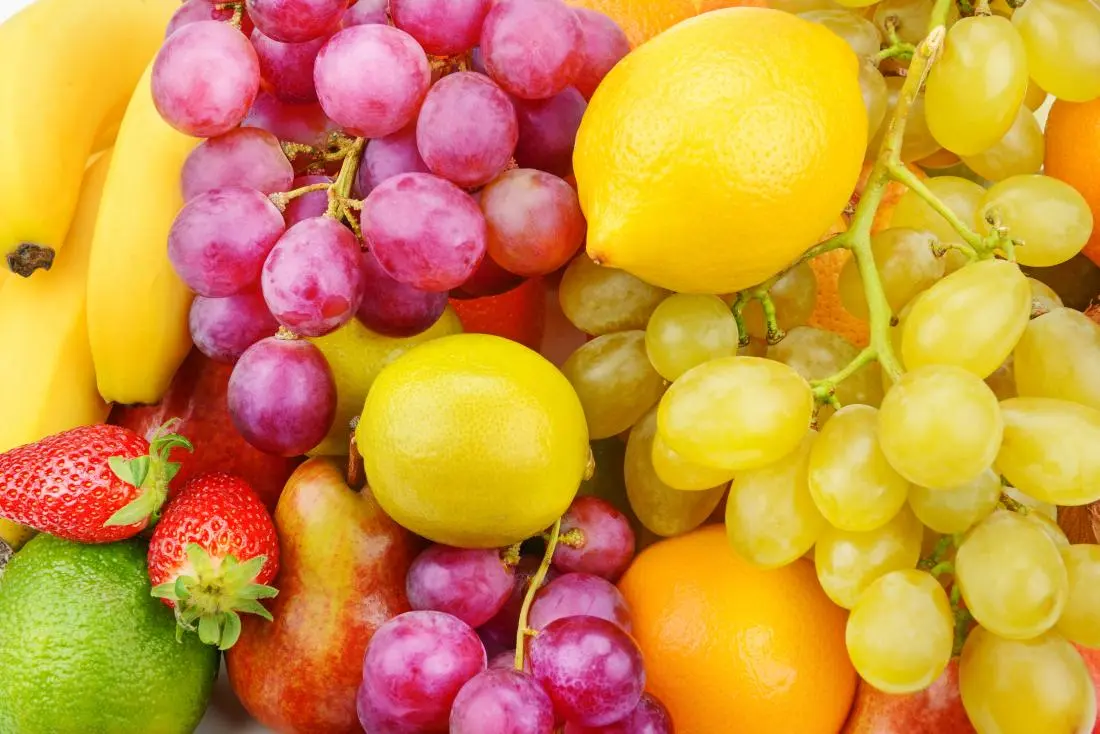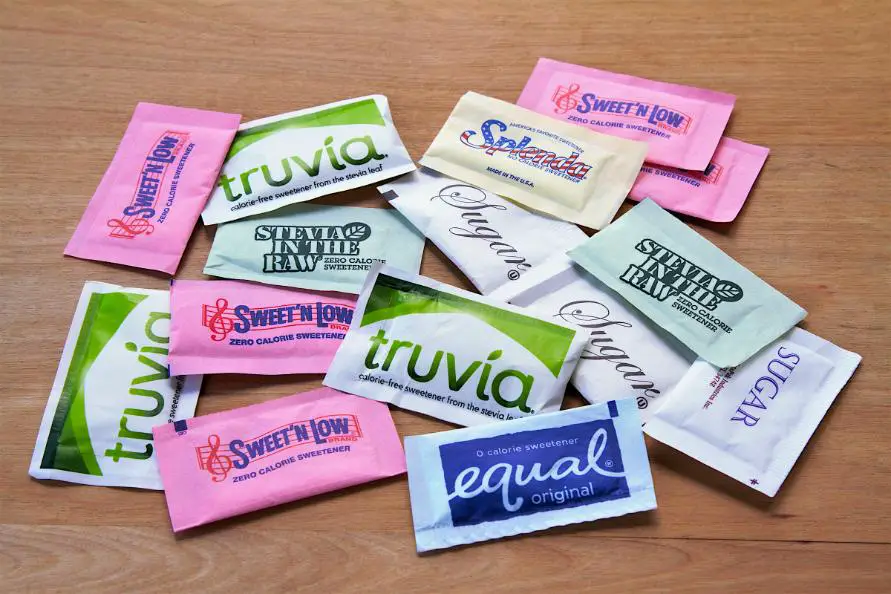Sugar, a familiar and sweet part of our daily diets, often finds itself at the center of various myths and misunderstandings.
From claims about its supposed link to diabetes to the belief that all sugars are equally harmful, misconceptions about this sweetener abound.
In this article, we will bust the myths about sugar, separating fact from fiction.
Let’s get started!
Here are the 5 Most Common Myths About Sugar:
- All Sugars Are Equally Bad
- Natural Sugars Are Healthier
- Sugar Causes Diabetes
- Sugar-Free Means Healthy
- Fruit Sugar is Harmless
[toc]

Myth 1: All Sugars Are Equally Bad
Why the Myth Persists:
In everyday language, the term “sugar” is often used broadly to refer to all sweeteners, including both natural sugars found in fruits and vegetables and added sugars in processed foods.
This lack of differentiation contributes to the belief that all sugars are equally detrimental.
Debunking the Myth:
Not all sugars are created equal. While excessive added sugars, particularly from processed foods, can contribute to health issues, natural sugars found in fruits and vegetables come packaged with essential nutrients and fiber.
It’s crucial to distinguish between added sugars and those naturally occurring in whole foods.
Myth 2: Natural Sugars Are Healthier
Why the Myth Persists:
The belief that sugars from natural sources, like honey or maple syrup, are healthier, often arises from the perception that anything natural must be beneficial.
Debunking the Myth:
While natural sugars may offer some nutritional benefits, they can still impact blood sugar levels. The body processes added sugars and natural sugars similarly.
Moderation is key, and the overall context of the diet matters. Consuming excessive amounts of natural sugars is still detrimental to health.
Myth 3: Sugar Causes Diabetes
Why the Myth Persists:
Public health messages often simplify complex health issues for better communication, but this oversimplification can lead to misunderstandings.
The association between sugar and diabetes is often presented in a way that implies a direct causal link, with sugar being portrayed as the sole culprit.
Debunking the Myth:
Type 2 diabetes is influenced by a combination of genetic, lifestyle, and environmental factors.
While excessive sugar consumption can contribute to weight gain, a known risk factor for diabetes, it is not the sole cause.
A balanced diet, regular exercise, and maintaining a healthy weight are crucial in diabetes prevention.
Myth 4: Sugar-Free Means Healthy
Why the Myth Persists:
The term “sugar-free” on food labels can mislead consumers into thinking that products are automatically healthier choices.
Debunking the Myth:
Sugar-free products often contain artificial sweeteners, which may have their own set of health concerns.
Additionally, these products may compensate for the lack of sugar with higher levels of unhealthy fats or other additives.
Reading ingredient lists and understanding the overall nutritional profile is essential for making informed choices.
Myth 5: Fruit Sugar Is Harmless
Why the Myth Persists:
Fruits come with natural packaging in the form of fiber. The fiber content in fruits can slow down the absorption of sugars, helping to regulate blood sugar levels and providing a feeling of fullness.
This natural packaging and the associated health benefits of fiber can contribute to the perception that the sugars in fruits are inherently different and less harmful than added sugars in processed foods.
Debunking the Myth:
While fruits offer valuable nutrients, consuming them in excess can contribute to high sugar intake.
Again moderation is key, and the fiber in fruits helps mitigate the impact on blood sugar levels.
However, understanding portion sizes and considering individual health conditions is crucial to maintaining a balanced diet.

Myth 6: Brown Sugar Is Healthier Than White
Why the Myth Persists:
The belief that brown sugar is a healthier alternative often arises from the perception that its color indicates a less refined and more natural product.
Debunking the Myth:
Brown sugar is essentially white sugar with added molasses, providing it with a distinct color and flavor. Nutritionally, the differences are minimal.
Both types of sugar contribute empty calories and should be consumed in moderation. The molasses content in brown sugar doesn’t make it a significantly healthier option.
Myth 7: Artificial Sweeteners Are Better
Why the Myth Persists:
The idea that artificial sweeteners are a healthier choice is rooted in the belief that they offer sweetness without calories, making them suitable for weight management.
Debunking the Myth:
Artificial sweeteners have their own set of concerns, including potential impacts on metabolism and gut health.
While they may be beneficial for individuals with specific health conditions, the long-term effects of regular artificial sweetener consumption are still under scrutiny.
Moderation and consideration of individual health factors are crucial.
Myth 8: Sugar Causes Hyperactivity in Children
Why the Myth Persists:
The perception that sugar makes children hyperactive has been perpetuated by anecdotal observations and cultural expectations.
Debunking the Myth:
Numerous scientific studies have debunked the link between sugar consumption and hyperactivity in children.
The placebo effect and the excitement of certain situations, such as birthday parties with sugary treats, might contribute to the perception of increased activity.
However, sugar alone is not a proven cause of hyperactivity.
Myth 9: You Can Burn Off Sugar Easily
Why the Myth Persists:
The idea that exercise can easily compensate for high sugar intake is grounded in the belief that physical activity can negate the negative effects of unhealthy eating habits.
Debunking the Myth:
While exercise is crucial for overall health, relying solely on physical activity to offset excessive sugar consumption is unrealistic.
The body’s response to sugar involves complex metabolic processes, and overconsumption can lead to various health issues regardless of activity level.
A balanced diet and exercise go hand in hand for optimal health.
Myth 10: Sugar Addiction Is a Myth
Why the Myth Persists:
The myth persists because some argue that the term “addiction” may be too strong when applied to food, as it doesn’t involve the same neurological and behavioral patterns observed with traditional addictive substances.
Others believe that while certain eating behaviors share similarities with addiction, it may be more appropriate to characterize them as problematic or compulsive eating rather than addiction.
Debunking the Myth:
Emerging research suggests that sugar can indeed have addictive properties, affecting the brain’s reward centers.
While not everyone may experience addiction to sugar, some individuals may find it challenging to control their cravings.
Acknowledging the addictive potential of sugar is essential for promoting mindful consumption.
Myth 11: All Sugar Alternatives Are Safe
Why the Myth Persists:
Sweeteners like stevia, monk fruit, and erythritol are examples of sugar alternatives often marketed as natural and derived from plants.
Consumers often associate natural-sounding or plant-derived sweeteners with safety, assuming that if a sweetener is derived from a plant, it must be inherently safe.
Debunking the Myth:
Individual responses to these substitutes vary, and some individuals may experience adverse reactions or allergies.
The long-term effects of sugar alternatives remain uncertain due to a lack of comprehensive studies.
Likewise, safety is influenced by processing methods and the potential presence of contaminants.
Myth 12: Agave Nectar Is a Healthy Sweetener
Why the Myth Persists:
Agave nectar is often marketed as a natural sweetener with a low glycemic index, leading to the belief that it’s a healthier option.
Debunking the Myth:
Despite its low glycemic index, agave nectar is high in fructose, which can have adverse effects on metabolism and contribute to insulin resistance.
Its potential impact on health, particularly in terms of increased fructose intake, suggests that moderation is key when using agave nectar.

Myth 13: Sugar Causes Cancer
Why the Myth Persists:
The growing awareness of health issues related to excessive sugar intake, such as obesity and metabolic disorders, has fueled concerns about the broader health impacts of sugar.
This fear may contribute to the exaggeration of sugar’s association with various health problems, including cancer.
Debunking the Myth:
While excessive sugar consumption can contribute to obesity, a known risk factor for some cancers, there’s no direct evidence establishing sugar as the sole cause of cancer.
The relationship between diet and cancer is complex, involving various factors beyond sugar intake.
Myth 14: Natural Sweeteners Don’t Raise Blood Sugar
Why the Myth Persists:
The belief that natural sweeteners, such as honey or maple syrup, have minimal impact on blood sugar levels stems from the assumption that their natural origins make them healthier.
Debunking the Myth:
Natural sweeteners still contain sugars that can raise blood glucose levels. While they may offer some additional nutrients, their impact on blood sugar is comparable to that of refined sugars.
Monitoring overall sugar intake is crucial for managing blood sugar levels.
Myth 15: Only Sweets Contain Sugar
Why the Myth Persists:
Many people primarily associate sugar with sweet treats such as candies, cookies, and desserts, narrowly interpreting the term ‘sugar’ to refer exclusively to sucrose or table sugar.
Consumers are not fully aware of the various names for added sugars listed on food labels.
Ingredients like high-fructose corn syrup, maltose, dextrose, and others might not be immediately recognized as sugars
Debunking the Myth:
Sugar is often added to a wide range of processed foods, including sauces, condiments, and even savory snacks.
Understanding food labels and being aware of sources of hidden sugars is essential for those aiming to reduce their overall sugar intake.
Myth 16: Low-Fat Products Are Low in Sugar
Why the Myth Persists:
Consumers may assume that if a product is labeled as “low-fat,” it must be a healthier option overall.
This assumption leads to the misconception that low-fat products inherently have lower sugar content.
Debunking the Myth:
In many cases, when fat is removed from products, sugar is added to maintain flavor and palatability.
Low-fat or fat-free products can indeed be high in sugar, and consumers should carefully read nutrition labels to understand the overall composition of these products.
Myth 17: Heart Disease Are Directly Caused By Sugar
Why the Myth Persists:
Associations between high sugar intake, obesity, and metabolic syndrome contribute to the belief that sugar directly causes heart disease.
Debunking the Myth:
While excessive sugar consumption can contribute to risk factors like obesity and diabetes, it’s the overall dietary pattern, including factors such as saturated fat and cholesterol intake, that plays a more direct role in heart disease.
Managing a heart-healthy diet involves considering the broader nutritional context.
Myth 18: Natural Sugars Don’t Contribute to Obesity
Why the Myth Persists:
Many people associate the term “natural” with healthiness and perceive sugars found in fruits and other natural sources as less harmful.
This association can lead to the belief that natural sugars do not contribute significantly to obesity.
Debunking the Myth:
While the fiber in whole foods helps regulate blood sugar levels, excessive consumption of natural sugars can contribute to an imbalance in caloric intake, leading to weight gain.
Moderation and consideration of the overall diet are crucial for preventing obesity.
Myth 19: Sugar Causes Wrinkles
Why the Myth Persists:
Media and beauty industries may selectively report scientific findings, emphasizing certain studies that suggest a link between sugar and skin aging.
This selective reporting can create a distorted view of the relationship between sugar and wrinkles.
Debunking the Myth:
While a diet high in processed sugars may contribute to inflammation and oxidative stress, factors linked to aging, the direct link between sugar consumption and wrinkles is not firmly established.
Multiple lifestyle factors, including sun exposure and genetics, play significant roles in skin health.
Myth 20: Artificial Sweeteners Are Innocuous
Why the Myth Persists:
Assumptions that artificial sweeteners are harmless arise from their approval by regulatory bodies and their widespread use in sugar-free products.
Debunking the Myth:
Some studies suggest potential adverse effects of artificial sweeteners on metabolic health and gut microbiota.
While they are generally recognized as safe, their long-term impacts are still under investigation.
Awareness of individual sensitivities is crucial when consuming artificial sweeteners.

Myth 21: All Sugar Alternatives Are Equally Tasty
Why the Myth Persists:
The belief that all sugar substitutes share the same pleasant taste may stem from the assumption that sweetness is a universal characteristic.
Debunking the Myth:
Different sugar alternatives have distinct tastes and aftertaste. Some people may prefer the taste of certain substitutes, while others find them less palatable.
Myth 22: Coffee Sweeteners Are Not Harmful
Why the Myth Persists:
Many coffee sweeteners, such as artificial sweeteners or low-calorie sweeteners, are marketed as low or zero-calorie alternatives to sugar.
This creates a perception that using these sweeteners will not contribute to weight gain or have adverse health effects, contributing to the myth.
Debunking the Myth:
Coffee sweeteners, especially in excessive amounts, may contribute to increased overall sugar intake.
Additionally, certain sweeteners may have associated health concerns.
Being mindful of the quantity and type of sweetener used in coffee is crucial for those looking to manage their sugar intake.
Myth 23: All Sugars Have the Same Glycemic Impact
Why the Myth Persists:
In everyday language, the term “sugar” is often used broadly and may not distinguish between various types of sugars, such as naturally occurring sugars in fruits (fructose) and added sugars (sucrose, glucose, or high-fructose corn syrup).
This lack of differentiation contributes to the belief that all sugars behave the same way in the body.
Debunking the Myth:
Different sugars have varying effects on blood sugar levels.
Factors such as the presence of fiber, other nutrients, and individual responses can influence the glycemic response of a sugar source.
Understanding these variations is essential for individuals managing conditions like diabetes.
Myth 24: Sugar-Free Diets Are Always Healthy
Why the Myth Persists:
Some food products are labeled as “sugar-free” to appeal to health-conscious consumers.
While reducing added sugars can be beneficial, the myth persists when people assume that any product labeled as sugar-free is inherently healthy.
Debunking the Myth:
While reducing added sugars can be beneficial for health, eliminating all sugars, including those naturally present in whole foods, is not necessary for everyone.
The focus should be on the quality and sources of sugars consumed rather than a blanket restriction.
Sugar Myths FAQs
1. What is a shocking fact about sugar?
A shocking fact about sugar is that the average person consumes significantly more sugar than recommended by health organizations.
For example, in the United States, the average daily sugar intake is much higher than the recommended limits, contributing to various health concerns.
2. What are the bands of sugar?
The downsides of excessive sugar consumption include weight gain, increased risk of type 2 diabetes, tooth decay, cardiovascular issues, and negative impacts on mental health.
High sugar intake is also linked to inflammation and an increased risk of chronic diseases.
3. What is the truth about sugar intake?
The truth about sugar intake is that while small amounts can be part of a balanced diet, excessive consumption is linked to various health problems.
It’s essential to be mindful of added sugars in processed foods and beverages.
4. Can you live without sugar?
While it’s challenging to eliminate all forms of sugar, cutting back on added sugars and focusing on natural sources like fruits is a healthier approach.
Complete elimination is not necessary, but moderation is key.
5. Should I quit sugar?
Quitting sugar entirely is not required, but reducing added sugar intake is advisable for better health.
Choosing whole foods over processed ones and being mindful of sugar content can contribute to a healthier lifestyle.
6. What foods are 100% sugar-free?
Very few foods are entirely sugar-free, but some naturally low-sugar options include non-starchy vegetables, meats, and certain dairy products.
However, even these foods may have small amounts of naturally occurring sugars.
7. Will I live longer if I stop eating sugar?
Reducing sugar intake may contribute to better overall health, potentially reducing the risk of chronic diseases.
However, various factors influence lifespan, and complete sugar avoidance is not a guaranteed way to extend life.
8. Does quitting sugar improve skin?
Reducing sugar intake may have positive effects on skin health. High sugar consumption is linked to skin issues like acne and premature aging.
Cutting back on sugar can contribute to clearer, healthier-looking skin.
9. What are the 7 negative effects that sugar has on the body?
- Weight Gain
- Increased Risk of Type 2 Diabetes
- Tooth Decay
- Cardiovascular Issues
- Mental Health Impact
- Inflammation
- Increased Risk of Chronic Diseases
10. What are the 10 negative effects of sugar?
- Weight Gain
- Increased Risk of Type 2 Diabetes
- Tooth Decay
- Cardiovascular Issues
- Mental Health Impact
- Inflammation
- Increased Risk of Chronic Diseases
- Energy Crashes
- Impaired Liver Function
- Negative Impact on Cellular Aging
11. Does eating sugar have benefits?
While small amounts of sugar can provide quick energy, the benefits are limited.
Natural sugars found in whole foods like fruits offer additional nutrients, but the key is moderation to avoid the negative effects of excessive sugar consumption.
12. What happens if you stop eating sugar for 14 days?
Stopping sugar intake for 14 days may lead to various positive changes, including improved energy levels, better skin complexion, and reduced cravings.
However, individual responses vary, and it’s crucial to maintain a balanced diet for overall health.